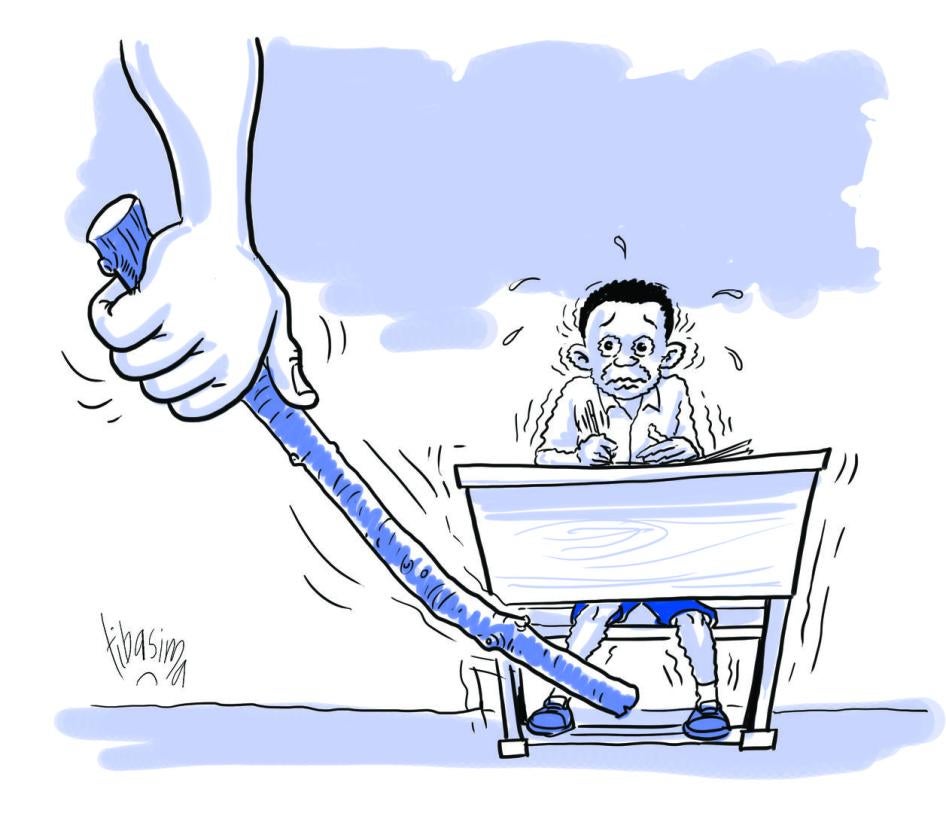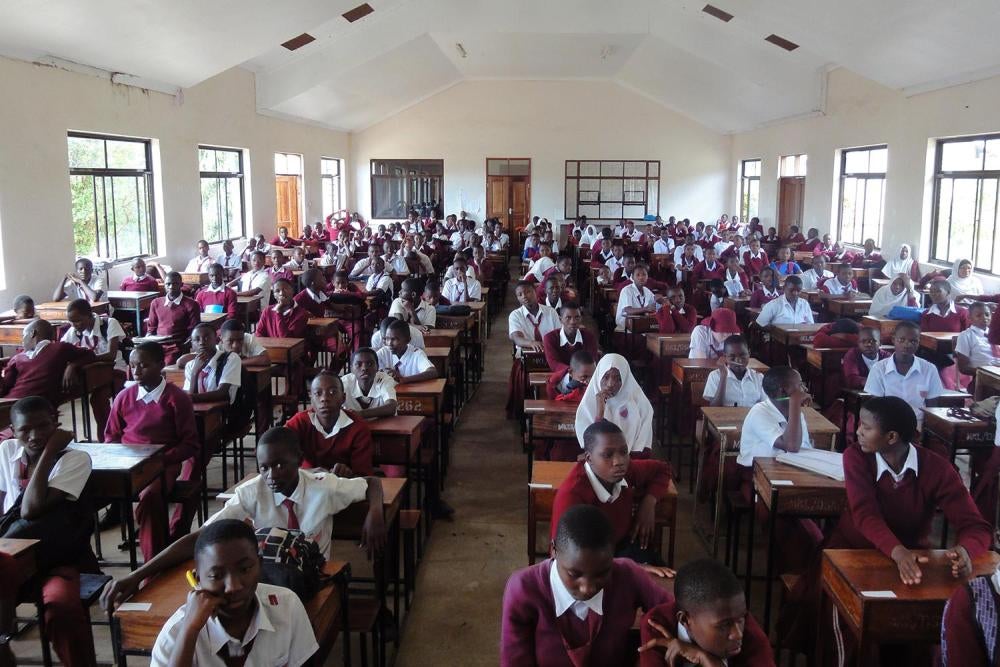Teachers often leave a mark on students. In Tanzania, it can hurt.
“When I was slapped, I felt I had the teacher’s hand on my face,” said Sandra, from Kahama district, whose name I have changed to protect her privacy.
In October, a video of a group of teacher trainees in Mbeya beating a male student who had reportedly not done his homework, went viral on the internet. The trainees were suspended and the school’s head teacher demoted.
But this was not an isolated incident, and government officials don’t always act when teachers abuse students. What was different in this case was that it was caught on camera and drew public outrage and condemnation.
Corporal punishment is a routine and state-sanctioned part of many students’ everyday reality in Tanzania, where a 2014 study by the African Child Policy Forum concluded that “the frequency of abuse by teachers … is alarmingly high.” A 2011 United Nations Children’s Fund (UNICEF) study on violence against children showed that teachers in the East African country frequently whipped, kicked, punched, or threatened both female and male students, including with a weapon.
Contrary to its international human rights obligations, Tanzania has national regulations that explicitly allow corporal punishment, including guidance on caning in schools. School officials, usually head teachers, are allowed to “[strike] a pupil on his hand or on his normally clothed buttocks with a light, flexible stick but excludes striking a child with any other instrument or on any other part of the body.” Punishment should not exceed four strokes, and female pupils should only receive punishment from a female teacher. Students who refuse punishment or teachers who violate these regulations can face disciplinary action.
In a recent study, Human Rights Watch documented widespread use of corporal punishment that exceeds the legal limit of the government’s current regulations. Teachers beat students without reporting it. as is required. Children are caned or beaten for all sorts of reasons, including being late for school—often after walking for hours to get there; not answering questions correctly; failing exams; or not completing assignments. They are slapped with hands, forced to jump squats, told to kneel and walk on their knees with hands on their backs, cut grass, and mop toilets. Others endure scathing personal insults.
Female students suffer further humiliation. Girls in one school told us that female teachers hit them on the breasts. Girls also said they suffer additional indignity when beaten while menstruating. One girl said, “They use a stick as punishment, in the bottom and back. We have to bend over like this.… During periods it’s worse…. When they beat us using the stick, they keep on hitting, sometimes our cloth [sanitary] pads come out and the bleeding stains our clothes.”
Girls also face safety challenges in schools, including sexual abuse and harassment by teachers, with little accountability. They are also forced to undergo pregnancy tests and, if found to be pregnant, are expelled from school as a warning to other girls.
Teachers justify corporal punishment by referring to the adage that if you spare the rod you spoil the child. They say it is a way to make students learn. Senior political leaders have also repeatedly encouraged corporal punishment in schools. In 2013, then-Deputy Minister for Education and Vocational Training Philipo Mulugo publicly linked the absence of corporal punishment and the decline of discipline in schools. Last March, President John Magufuli attributed his success to the beatings he received in class: “I am wondering why they stopped caning in schools,” he said. “I was also caned and that’s why I am standing here today.”
But corporal punishment, in all its forms, is violence against children and should have no place in institutions of learning. It harms children’s physical, mental and emotional health; their behavioral development; their ability to learn well; and can lead to dropping out of school.
Tanzania needs to take concrete steps to end violence against students in schools. It should abolish corporal punishment in policy and practice, including by revoking the National Education (Corporal) Punishment Regulations of 1979, and adopt a policy and regulations on positive ways to promote discipline. It should combat sexual abuse against female students by setting up confidential reporting mechanisms in schools, and ensuring that all cases are reported to appropriate enforcement authorities, including police, and that cases are duly investigated and prosecuted. It should end mandatory pregnancy testing in schools.
Schools should not be places of fear and violence. Twenty-nine countries in Africa have outlawed corporal punishment in schools, including Tanzania’s neighbors Kenya and Uganda. Taking measures to prevent teacher-on-student violence and abuse will not only ensure that Tanzania is in compliance with its international and regional human rights obligations; it will help create an environment in which children can thrive and learn.






















